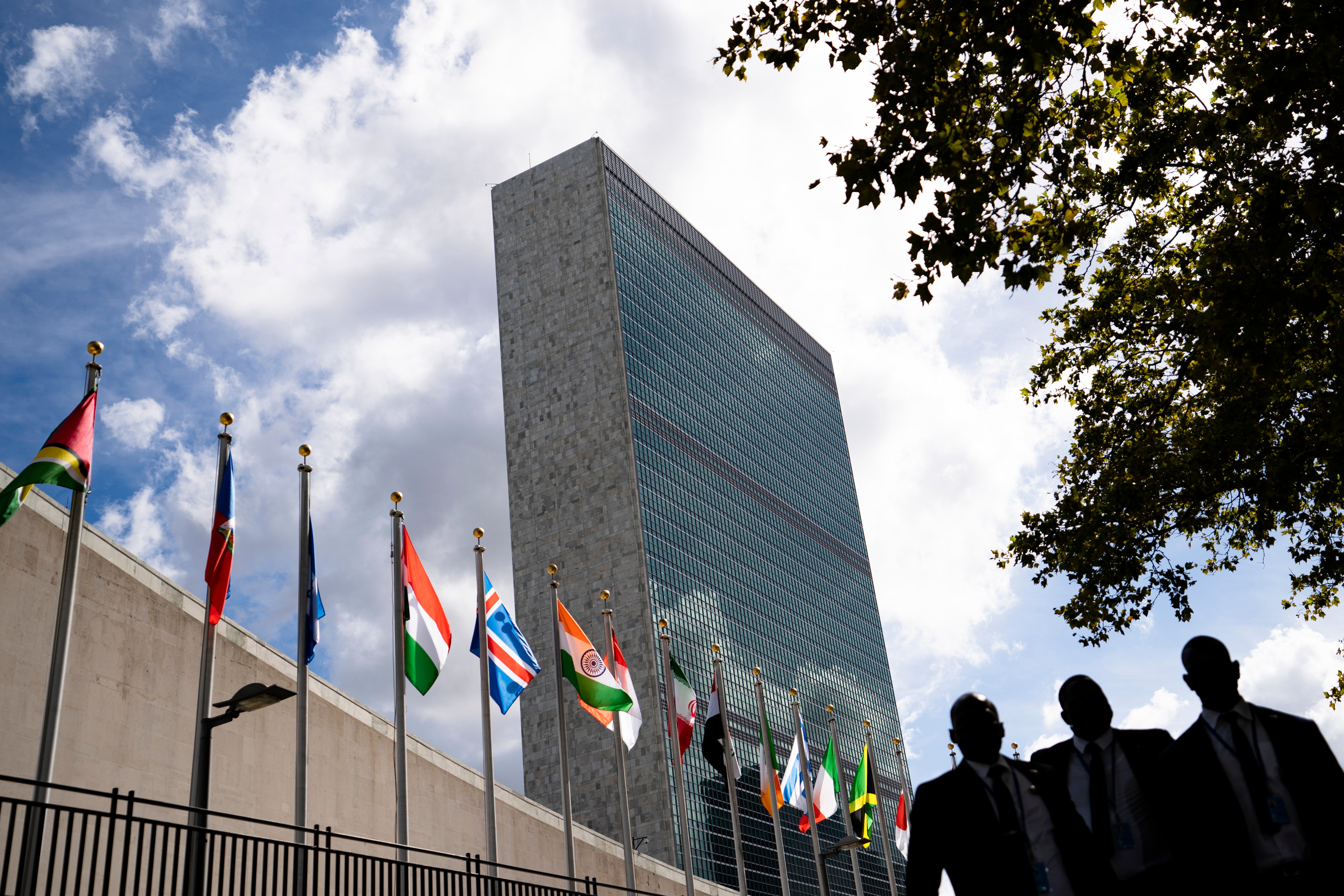UN racism meeting recommits to goals but renews divides
The U.N. General Assembly is pledging to redouble efforts to combat racism around the world as it commemorates a landmark but contentious 2001 anti-racism conference

Your support helps us to tell the story
From reproductive rights to climate change to Big Tech, The Independent is on the ground when the story is developing. Whether it's investigating the financials of Elon Musk's pro-Trump PAC or producing our latest documentary, 'The A Word', which shines a light on the American women fighting for reproductive rights, we know how important it is to parse out the facts from the messaging.
At such a critical moment in US history, we need reporters on the ground. Your donation allows us to keep sending journalists to speak to both sides of the story.
The Independent is trusted by Americans across the entire political spectrum. And unlike many other quality news outlets, we choose not to lock Americans out of our reporting and analysis with paywalls. We believe quality journalism should be available to everyone, paid for by those who can afford it.
Your support makes all the difference.The U.N. General Assembly pledged Wednesday to redouble efforts to combat racism around the world, commemorating a landmark but contentious 2001 anti-racism conference by holding an anniversary meeting once again riven with divisions.
Looking back on the two decades since the conference in Durban South Africa the assembly adopted a resolution that acknowledged some progress but deplored what it called a rise in discrimination, violence and intolerance directed at people of African heritage and many other groups — from the Roma to refugees, the young to the old, people with disabilities to people who have been displaced.
Vowing “to accelerate momentum to make the fight against racism ... a high priority for our countries," the measure pointed to the effects of slavery, colonialism and genocide and called for ensuring that people of African descent can seek “adequate reparation or satisfaction” through national institutions. It also noted ills caused by religious prejudices, specifically including anti-Muslim, antisemitic and anti-Christian bias.
But Israel, the United States and some other countries — at least 19 nations in all, by Israel's count — boycotted the meeting because of continued grievances about the Durban meeting 20 years ago, where the U.S. and Israel walked out because participants drafted a conference declaration that denounced Israel's treatment of Palestinians.
And Jamaica, while joining Wednesday's meeting, complained there weren't sufficient calls for slavery reparations in a new political declaration that was drafted but apparently stalled over disagreements.
Still, the event — coinciding with the assembly's annual meeting of world leaders — spotlighted the cause of racial equality at a time when the coronavirus pandemic has underscored inequities, and as the 2020 police killing of George Floyd in the U.S. has re-energized racial justice movements around the world.
“As we strive to correct the wrongs of the past, we must combat racism, sexism and national chauvinism of the present," South African President Cyril Ramaphosa told the gathering via video.
“Just as we have united to combat the COVID 19 pandemic. Let us recommit ourselves to implement" the promises made in Durban, he added. “Ending racism is a fight in which each of us has a stake.”